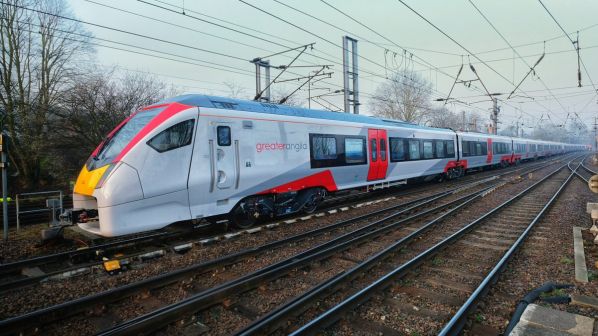Overall group turnover increased 15.7% compared with 2017 to €5.926bn, including €2.824bn from international subsidiary Abellio, up from €1.989bn in 2017. Net profits for the holding reached €205m, compared with €47m in 2017.
The first full year of Britain’s West Midlands franchise, which began in December 2017, accounts for much of the increase in turnover, while the consolidation of the Westfalenbahn contract added €86.3m to Abellio’s revenues in Germany.
Abellio’s British operations generated revenues of €2.467bn, but net profits dropped from €29.3m in 2017 to €26.2m last year. Abellio reports a significant slowdown in passenger growth in Britain over the last year.
In Germany, Abellio suffered a net loss of €5.7m, primarily due to costs stemming from preparations for the start of the new Rhine-Ruhr Express and Saxony-Anhalt Diesel Network contracts and other contracts scheduled to start in 2019-2020.
In the Dutch market, NS achieved a record customer satisfaction score of 86% while punctuality increased by 1% to 92.6% for peak trains (95.1% for off-peak services).

Photo: Quintus Vosman
NS invested €898m last year, including €831m in the Netherlands. Much of this was spent on rolling stock modernisation and renewal, as well as the redevelopment of stations such as Rotterdam Alexander, Assen and Zaandam.
Service improvements in 2018 included the successful introduction of 10-minute-interval Amsterdam - Utrecht - Eindhoven intercity services and the entry into service of the CAF New Generation Sprinter (SNG) EMUs.
Another success for NS in 2018 was the growth of last-mile services. Usage of the OV-Fiets bike rental service rose from 3.1 million to 4.2 million and NS added 6000 bikes to the fleet, which now stands at 22,500. NS added 500 car parking spaces at stations and around 5% of passengers now drive to stations. NS Zonetaxi, a cooperative venture between NS and local taxi companies, is now available at 377 Dutch stations.
HSL South problems
Despite these successes, NS also faced challenges in 2018. The operation of IC Direct services on the HSL South high-speed line remains a major concern. Around a fifth of trains are delayed and technical problems with Traxx locomotives and ETCS have contributed to poor reliability. Punctuality dropped from 85.5% in 2017 to 82.5% last year.
However, passenger numbers on IC Direct services increased significantly in 2018. Amsterdam - Brussels IC Direct services were rerouted via HSL South while domestic trains were lengthened with an additional coach and frequencies increased from four to five services an hour.

Photo: Quintus Vosman
A notable event on HSL South was the introduction of London - Amsterdam Eurostar services, which are run in partnership with NS using the Dutch operator’s license.
Concession review
2019 is an important year for NS as the mid-term review for the Core Network Concession will take place. The mid-term review was set up by the Ministry of Infrastructure following irregularities by NS and its subsidiaries in the tendering for the Limburg regional public transport concession, poor performance on the network, and a Parliamentary Investigation Committee probe into NS’ activities.
The review will scrutinise improvements made by NS since the start of the current concession. It will also feed into the decision on whether the next 10-year concession should be directly awarded to NS, and whether the incumbent should retain the exclusive right and obligation to operate passenger services on the Core Network.
Alternatives could include splitting the Core Network into smaller parts or introducing open tendering for groups of lines. In this context, NS is determined to maintain its exclusive and dominant position, which is reflected in its focus on investment and improving performance.

